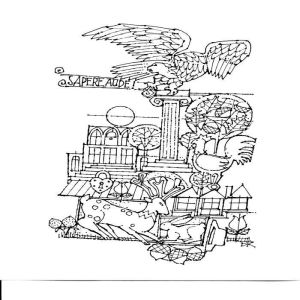

Foundations of Ethics
Author: Immanuel Kant
Narrator: Ray Childs
Unabridged: 5 hr 1 min
Format: Digital Audiobook Download
Publisher: Agora Publications
Published: 01/01/2010
Categories: Nonfiction, Philosophy, Ethics & Moral Philosophy


Author: Immanuel Kant
Narrator: Ray Childs
Unabridged: 5 hr 1 min
Format: Digital Audiobook Download
Publisher: Agora Publications
Published: 01/01/2010
Categories: Nonfiction, Philosophy, Ethics & Moral Philosophy
Immanuel Kant (1724-1804) was a Prussian philosopher whose best-known works include the Critique of Pure Reason, the Critique of Practical Reason, the Critique of Judgment, and the Metaphysics of Morals. The fourth of eleven children, he attended the University of Königsberg beginning in 1740, where he later became a professor of philosophy. A central figure in moral philosphy, Kant's doctrines rely upon the principles of human autonomy and rationality. His work influenced-either as a foundation or a point of opposition-such later philosophers as Hegel, Schopenhauer, Nietzsche, and Foucault, and his ideas have affected fields ranging from metaphysics and ethics to epistemology and political philosophy.
'Act so that you treat humanity, whether in your own person or in that of another, always as an end never as a means only.' This, the second formulation of Kant's extraordinary categorical imperative, remains radical today, just as it was revolutionary in 1785 when the 'Foundations' was published.........more
i deadass could not care less what the white man is saying-- you're ran through! you're tired! why am i reading this 500 years after it was published. i done knew.......more
This book is one of the most important documents of moral philosophy, yet was not intended to be be so. Kant wrote the treatise as a general introduction to moral philosophy, setting out the basic concepts that he would later expand upon in the "Metaphysics of Ethics" ten years later. Yet, that larg......more